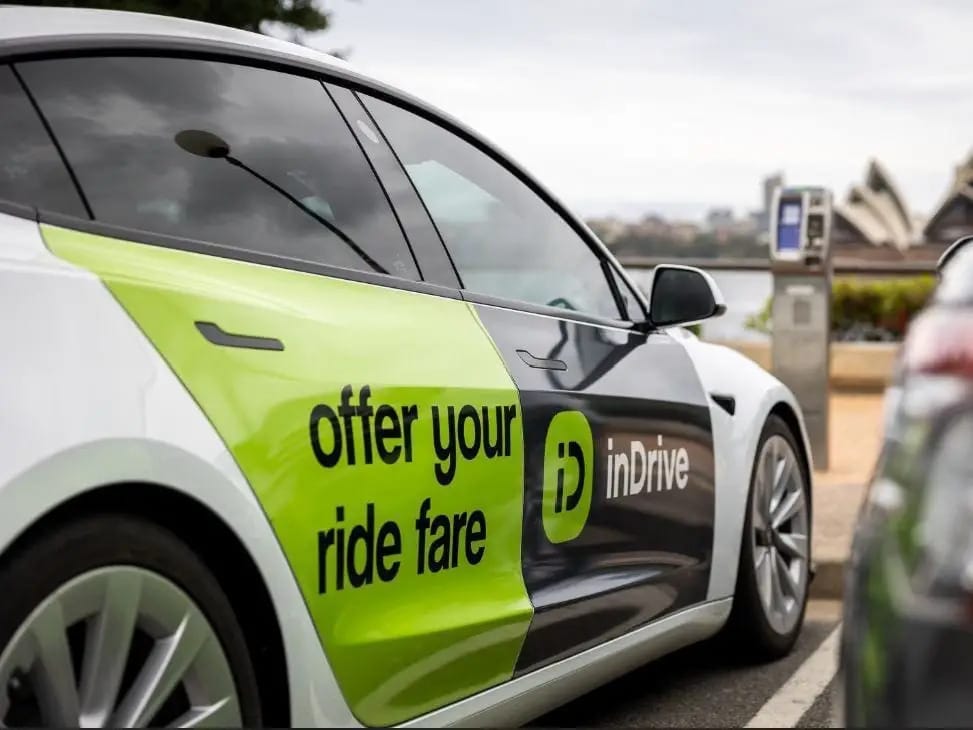BD Insider: InDrive faces a road bump
In this letter, we explore; Telcos in Nigeria are feeling the economic heat, South Africa’s incoming AI policy, InDrive drivers cry foul over low fares.

In this letter, we explore:
- Telcos in Nigeria are feeling the economic heat
- South Africa’s incoming AI policy
- InDrive drivers cry foul over low fares
We also curated updates on startup funding in Africa, weekend reads, and several opportunities.
The big three!
Telcos in Nigeria are feeling the economic heat
Nigeria’s leading telecom companies are sounding the distress bell. They're saying the cost of doing business in Nigeria is becoming unbearable. The situation has reached a critical point where these companies are contemplating reducing investments in the country.
Why does this matter? The telcos are considering a load-shedding strategy, meaning telecom services would no longer be available nationwide simultaneously. Instead, services would be provided in different regions at different times as operators struggle to keep all their sites running.
The telecom companies claim the government has failed to honour its 2001 agreement to provide 18 hours of daily power supply, forcing them to allocate a significant portion of their budget to energy costs. They also express frustration over the taxes and levies they are required to pay while doing business in the country.
What do they want? The telecom giants are pushing for tariff hikes to counter their rising expenses, sparking reactions from the National Communications Commission (NCC) and the National Association of Telecom Subscribers of Nigeria (NATCOMS). While the NCC recognises the economic challenges, it has accused the operators of using the load-shedding strategy as a tactic to pressure the commission into approving a tariff increase.
NATCOMS has also warned against the load-shedding plan, highlighting its potential impact not just on the telecom sector but also on other industries, such as health and education, that depend on reliable telecom services.
Context: In April 2024, Nigerian telcos contemplated raising the prices for calls and data, but the NCC rejected the move. The commission recently issued a statement denying claims that it had approved any tariff increase.
The telecom sector plays a vital role in Nigeria’s economic growth and development, so it would be interesting to see how this plays out.
South Africa’s incoming AI policy
South Africa has taken the first step in developing a national AI policy by publishing a National Artificial Intelligence Policy Framework.
The policy outlines key areas for development, including talent cultivation, infrastructure enhancement, ethical guidelines, and data privacy. This comprehensive approach aims to create an enabling environment for AI innovation and adoption across various sectors of the economy.
While the framework is in its early stages, with public consultations still underway, it signals South Africa's commitment to becoming an AI leader in Africa. The country's growing interest in AI is evident in public and private sector investments, with initiatives such as the Defence Artificial Intelligence Research Unit and Microsoft's investment in the local AI ecosystem.
Context: In April 2024, Kenya launched its national artificial intelligence (AI) strategy, joining other African nations in this effort. Similarly, Nigeria, led by Minister Bosun Tijani, is actively developing its own comprehensive National Artificial Intelligence Strategy through the Ministry of Communications, Innovation, and Digital Economy.
As South Africa charts its AI future, keeping track of its progress and tackling challenges like talent shortages, data access, and ethical concerns will be crucial.
Dig Deeper: Read South Africa’s National Artificial Intelligence Policy Framework.
InDrive drivers cry foul over low fares
Amidst Nigeria's economic challenges, ride-hailing platforms have become a lifeline for many drivers. However, drivers for InDrive, a popular platform known for its competitive pricing model, are up in arms over what they describe as "ridiculously low" fares.
With complaints piling up about recent trips barely covering fuel costs, the company has attributed the concerns to technical glitches. However, drivers are pushing back, insisting the problem is more systemic.
The tipping point came when numerous drivers shared app screenshots showing fares so low they could barely cover fuel costs. InDrive has pointed to GPS errors and passenger network issues as the cause, but drivers maintain the problem is rooted in the company’s “negotiated fare” model. This system, which aims to provide flexibility, has instead led to unsustainably low fares for drivers.
Context: InDrive isn’t the only ride-hailing platform facing pushback from drivers. Competitors like Bolt and Uber have also dealt with ongoing conflicts with drivers across Africa. Just this week in Kenya, ride-hailing drivers took matters into their own hands by setting their prices for passengers using these platforms.
This issue underscores a broader challenge gig economy workers face: income instability and a lack of worker protections. As the debate intensifies, it remains to be seen how InDrive will address the growing discontent among its driver community.
💰 State of Funding in Africa
Here’s a roundup of African startups that secured funding last week:
- Open Access Energy, a South African energy startup, has raised $750,000 from factor[e] Ventures.
- Kredete, a Nigerian digital lending marketplace startup, secured undisclosed funding from Launch Africa Ventures.
📚 Weekend reads
- What does it take for a country to package and export its culture
- How Spotify helped turn Afrobeats into a global phenomenon
- What this founder looks out for when hiring
🎥 Weekend watchlist
- How Olympic athletes make money
- I tried to kill my smartphone addiction with a dump phone. Here’s how it went
- Olympic athlete going viral after coming last in all his races
💼 Opportunities
Jobs
We carefully curate open opportunities in Product & Design, Data & Engineering, and Admin & Growth every week.
Product & Design
- Chowdeck — Product Designer, Lagos
- Cleo — Senior Product Manager, Remote
Data & Engineering
- Casava — Frontend Developer, Lagos
- Codematic — Engineering Manager, Lagos
Admin & Growth
- Blinqpay — Treasury Manager, Lagos
- Codematic — Country Manager, Lagos






